A Conversation with Ursula Macfarlane (THE LOST SONS)
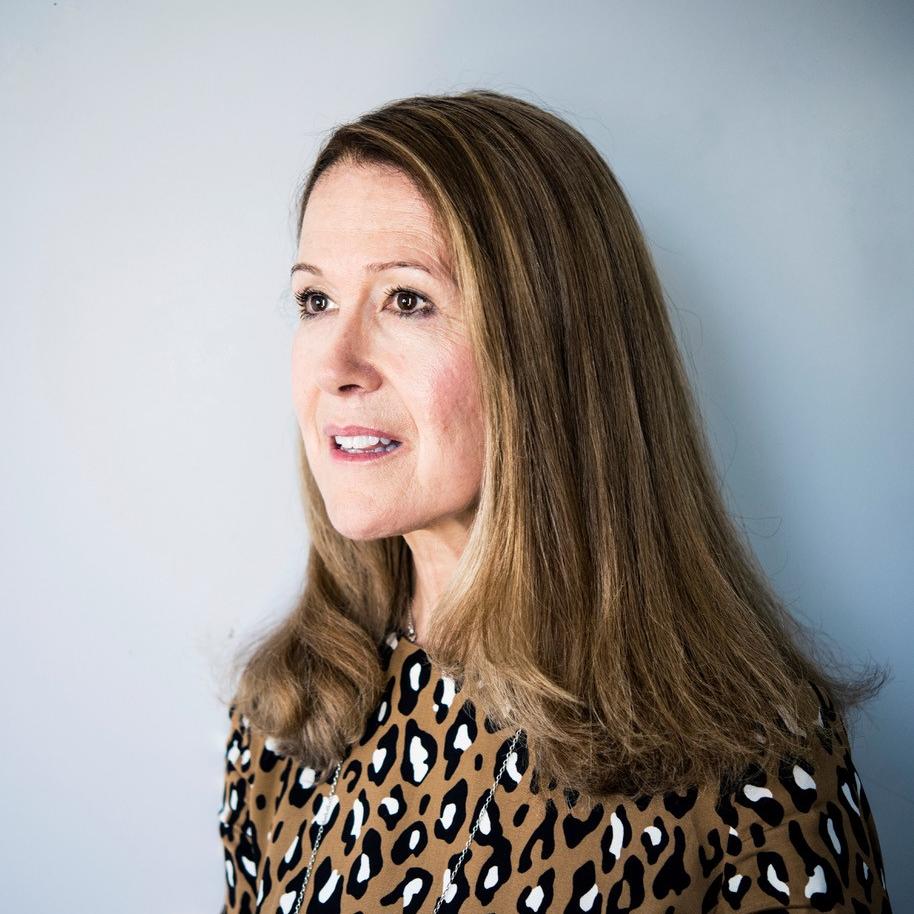
Just before the start of this year’s SXSW, I spoke by Zoom with English director Ursula Macfarlane about her new documentary, The Lost Sons (which I also reviewed), premiering at the festival. The film follows the too-crazy-to-be-true story of Paul Fronczak, kidnapped as a newborn and then discovered less than two years later, halfway across the country. Or was he? Now in his fifties, he searches for answers about his origins, no matter where they may lead him. Here is a condensed digest of our conversation, edited for length and clarity.
Hammer to Nail: I want to start, first of all, with a question about a previous film of yours and then get to this. In 2019, I saw your Untouchable documentary on Harvey Weinstein at the Sundance Film Festival; I was there for the premiere. I expected a greater response to the film. I mean, it played on Hulu, so clearly it got distribution, but it felt like the film received a somewhat muted response. It was coming out at a time when I thought everyone would want to see a documentary taking down Harvey Weinstein, and I thought it was terrific. I’m just curious how you felt about the film’s reception when it came out.
Ursula Macfarlane: It’s really nice to have an honest conversation about that, actually, because I think people don’t really talk about these things. But I agree with you. I think it was muted, particularly on that day. I mean, it was a weird premiere. I don’t know if you remember, at one point the lights kept coming on and then going off again. Somebody said to me afterwards that that was Harvey, that he’d slipped someone a thousand dollars to…anyway, whatever.
But I think it was very tense because he was still a free man. I mean, he had an ankle bracelet but he was a free man. Nobody knew what cases were going to go to trial. I think there was a lot of anxiety. I remember walking into that room and somebody whispered to me on my team. They said, “Look around. So many of the people in this room used to work for Harvey Weinstein or have collaborated with Harvey Weinstein.”
So, I don’t know. I mean, look, it’s not for me to say that people should have felt this or that about the film. We feel, as filmmakers, that we’re very proud of it. I think we got amazing testimony from women who hadn’t spoken before, at least most of them. I look back on that and the film did have a great journey. It went to lots of festivals and it had some limited cinema-theater releases. So it went on its way. It went out on the BBC. It had quite a big splash. It was quite acclaimed, I would say, here. It found a great home on Hulu. They really supported it.
So, I just feel we’re proud of what we did. It was a moment in time. It was a moment that needed to be marked. I think there will be a film made in 10 or 20 years’ time when we look back and we think, “Well, was that the watershed?” And I think more people who worked with Harvey will come out and talk. It was very hard for us to get people to talk. And perhaps, maybe the reaction was kind of, “Well, why haven’t they got more kind of bombshell allegations from within the company?” That was the biggest challenge of that film. But for me, in the end, it’s a film about the women and I just think that was a great thing to do.
HtN: I completely agree and I think there’s plenty of “bombshell testimony” in there from these women. I really appreciated your focus on them. But let’s move on to this new film. So, how did you get from Untouchable to this completely different movie, The Lost Sons? Were you working on them at the same time?
UM: No, not at all. I think it was soon after I finished Untouchable. I have a colleague named Liesel Evans who’s an executive at RAW that, as you know, made Three Identical Strangers. She called me up and she said, “Look, we’ve got this story, and I would say that it’s kind of in that vein.” And obviously, that’s a great reference to have because it’s a brilliant film and it’s an amazing story.
I think, to be really honest with you, even though The Lost Sons is a film with a lot of darkness, it’s also a film that does have some redemption and it does have some joy in it. It has some fun characters. I really needed to do something that didn’t take me to that very dark place. I had decided that, after Untouchable, while it wasn’t like I was going to do a comedy, necessarily, I wanted to do something that was a different flavor, a different palette, use different skills that I have because I have made things about music and sort of more lighthearted things, as well.
But the main reason that idea intrigued me is they had made a little sizzle reel. They’d gone out and interviewed Paul Fronczak and I just thought, “Oh my God, this is the most incredible story.” I mean, it’s an incredible story. The twists and turns of this story are…you would not believe it. And if people have seen Three Identical Strangers they’ll know about the powerful twist in that story, and I would say this has got just as good twists.
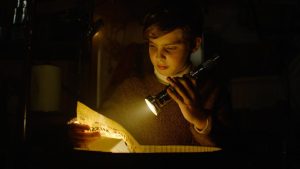
A still from LOST SONS
But also, it was about something that always fascinates me, which is family, which is roots, which is identity, which is “Who am I, where do I come from?” In Paul’s case, as people who watch the film will find out, there are many, many questions about what happened to him, particularly during a certain period of his very young life. And not just that. It’s not just about the mystery of what happened, but it’s also about how families navigate relationships when bad things happen, when secrets are there, when things are covered up, when there are betrayals and dark things going on in families. How do you deal with that? And how, as a man, as a person, do you come through that?
HtN: I can completely see how you would want to make this film after watching a sizzle reel, because Paul Fronczak is an extraordinarily engaging protagonist. I could see anybody watching an interview with him deciding that they wanted to continue. That’s one of the things I really liked about the film.
You talk about how you didn’t want to make a comedy, but this film is quite often very playful in terms of its mise-en-scène. You use a combination of archival material, interview footage and a lot of recreas, or recreations, and staged footage. What was your process like of assembling and creating all this footage, which involves quite a lot of narrative techniques, or traditionally fictional narrative techniques. which we increasingly see in documentary filmmaking? I think it can make for quite innovative non-fiction storytelling.
UM: Well, it was a story that started in 1964 and there is archival news footage. But there’s a very distressing big event, the inciting incident, that happens right at the beginning of the film. We had to kind of take the viewer into the room. We couldn’t just have talking heads saying, “And then this happened and then that happened” and cut to some black-and-white archive of Chicago in the 1960s. We wanted to take you right in there. I’m not giving anything away by saying that a newborn baby is kidnapped, who’s 24 hours old, probably one of the most unthinkably shocking things that could happen to any mother, any family, and it’s traumatic and it’s appalling. And there’s a police hunt and there’s the nurse who was there at the time who’s just full of horror and sorrow that she couldn’t stop this thing from happening.
So the emotions are heightened. We felt that the way to do that was with a kind of narrative approach. That word “recreation” is sort of much maligned. I know, as a documentary maker, it’s not a decision you take lightly to do those things because it is quite hard to get them right. But thank you if you feel they were done right. I’m really, really happy to hear that. But we wanted them to work within the context of real people today in 2020, as it were, telling you this story, and trying to get you inside the story and feel as if you are there.
And then the other thing I have to say about that process is we filmed it in South Africa. We were about to go and shoot it just before the lockdown and then the lockdown happened. We obviously couldn’t get to South Africa and nobody could work. They were in lockdown, as well. Then they came out of lockdown. We [in England] were still on a travel ban, so we made the decision to shoot it remotely. That was an experience that I’ve never had. Obviously, like most people, via Zoom screens, quite stressful.
But I’m so proud of everybody over there that we pulled it off. It’s very hard, I think, to be a cinematographer talking to someone via Zoom or talking to a child actor via Zoom and they’ve never met this funny woman over in England with a funny accent and what is she doing? Why is she there? And so it was very challenging, but I’m very proud that everybody pulled it off. I feel it sits in the film in a way that kind of sets off the tone and takes you back to the time, the era, and sets you off on a kind of exciting mystery story, as well.
HtN: Indeed. For the record, I’m all for whatever a filmmaker feels they need to do to tell the story in a refreshing way, recreas or not. I think sometimes, depending on the nature of the film, I may not like a particular recrea, but there’s nothing wrong with that. So, why South Africa?
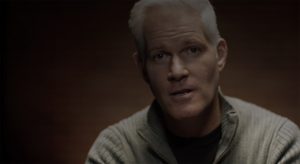
Paul Fronczak in THE LOST SONS
UM: Well, a lot of British production companies work in South Africa. I’ve shot something that was set in Somalia in Cape Town or just up the coast. It has incredible weather, so it’s a bit like shooting in California. You can rely on it. It can look period. It can look like New York. It can look a lot like Los Angeles, Beverly Hills. It could be the desert. It could be the Mediterranean. So we love filming there, and lot of commercials get shot there. I don’t know about American shows, but certainly a lot of British scripted narrative gets shot there. And I think RAW, actually, who made this film, shoot a lot of their drama stuff there. And I’d shot there before with this particular team and they’re just great. I love South Africans. They’re so can-do. They’re just like, “You want to go out to sea and pretend to be in a pirate ship? Yeah, that’s fine. We can do that.” They can do anything. We knew that in these very trying circumstances, if anybody was going to pull it off, they would and they did.
HtN: I just learned something. Thank you.
UM: Yeah.
HtN: Speaking of the playful filmmaking, I really enjoyed those stills coupled with the Rockwell paintings. I thought that was very clever. Was that your idea from the start?
UM: No, it wasn’t my idea because Paul said to me in the interview something like, “Our family life, we had a perfect family life. It was like a Rockwell painting.” And then our editor, Andy Worboys, found the paintings that then corresponded to the shots in the archival material. There’s a lovely shot of a father and a child on ice on the lake skating, and there was some archival of Paul and his dad when they were skating and falling over. It was one of those kind of happy accidents that often happen when you’re making a film. Sometimes, when you’re in the edit and you’re like, “Oh, hang on. He did that.” And then there’s one where there’s a piece of footage of the parents, Paul’s parents, Dora and Chester, carving a Thanksgiving turkey and then there’s a Rockwell painting of the family sitting down to the turkey dinner.
HtN: I always find it so interesting how Rockwell has long become shorthand for a certain kind of Americana. So, in both this film and Untouchable, the two films of yours that I’ve seen, you are navigating some pretty complicated emotional territory, at times. I wonder, as a filmmaker, how do you both prepare yourself and prepare your subjects for those kinds of interviews?
UM: Well, I try and spend as much time as possible with the subjects beforehand because my producer and I are always saying that trust is the thing. It’s all about trust. Now, in the last year, in the pandemic, it hasn’t always been possible to go and have dinner with them or hang out with them and the kids or whatever that you would like to do. And actually, even with Untouchable, I didn’t get to meet everybody just because of logistics and a pretty tight schedule. Having said that, we had calls with them. We had Skypes with them. We had Zooms with them. And then the producer of this film, Gagan Rehill, had gone out in advance and sort of did a road trip around and met people like Lenny Rocko, the boxer guy in the film. So, he’d sort of done a lot of work bonding with them.
Some people are very good at just sitting down and telling you their story. Other people you have to really work with. Paul is one of those people because, and I think he would say this himself, opening up is hard for him. He’s someone who created quite a shell around him because of all the things that happened to him in his life. We talked a lot about this, the fact that he finds it hard to express his feelings. I think we got there. He’s an amazing guy. I mean, the fact that he’s carved this life out for himself and has a wonderful daughter and that he’s a great dad…but it was a process of just hanging out with Paul and listening to him, reading his book. Obviously, he’d written a memoir. But that’s what I do with everybody. It doesn’t matter who they are. Just try and spend time. You can’t take trust for granted. Sometimes, the chemistry is difficult and sometimes it’s really easy, but it’s about making them feel comfortable.
HtN: The film is structured as an unfolding mystery where we know less than the characters do as it proceeds. How much of that mystery that we see unfold were you and Paul still discovering in the making of the film, or were all the facts that we see already known?
UM: The film takes place in the far past, the ’60s, then the sort of recent past, the 2000s, and then in the present day. And yes, we did go on a journey with Paul to discover things, meet people he hadn’t already met, discover things he hadn’t already discovered. So the last third of the film is that journey that Paul goes on. When you watch the film, you will see that some things are still left unsolved. The journey goes on. Paul continues his journey. I think there will be more twists and turns along the way. I mean, I kind of hope that when the film goes out, maybe some more people will come out of the woodwork. That’s my hope, because I think it’s very important for Paul. And again, I don’t think I’m giving too much away, but there’s a big puzzle. His life is a big, big puzzle and probably some pieces will never be put back together, but I think there are pieces out there that somebody else still knows something about.
HtN: Well, here’s hoping for Paul and for everyone else involved and for your film that indeed more is discovered. I really enjoyed the film. Thank you for making it!
UM: Thank you so much!
– Christopher Llewellyn Reed (@ChrisReedFilm)








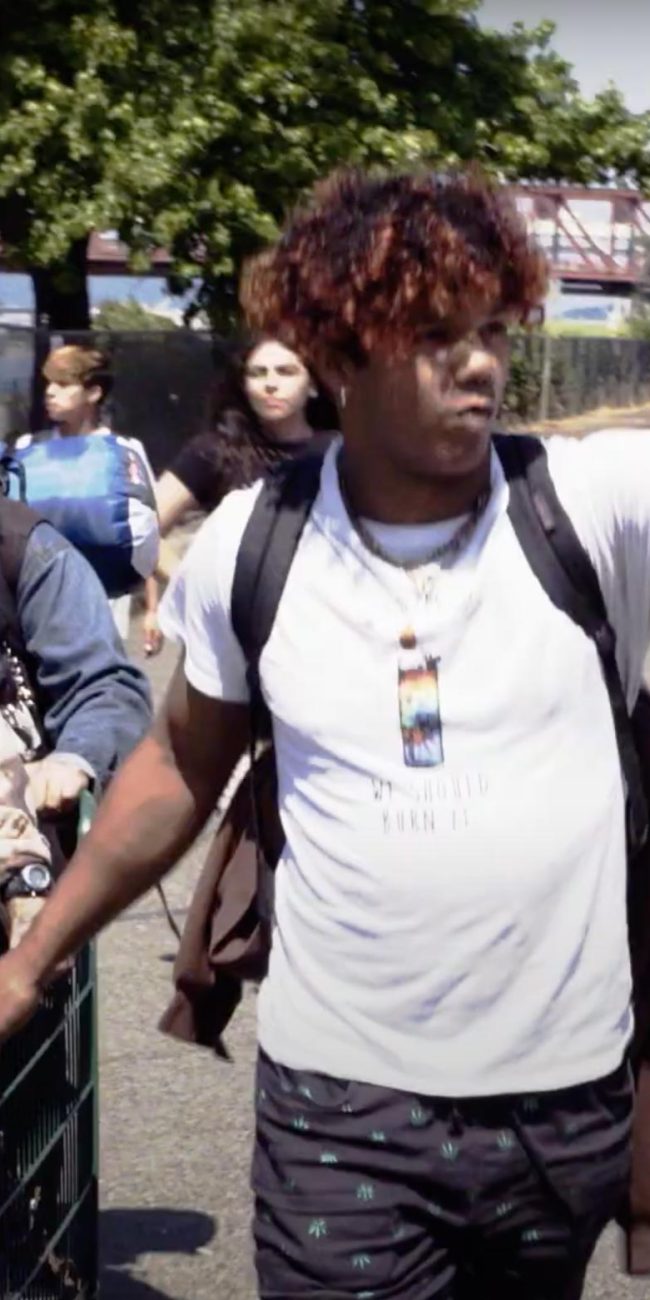
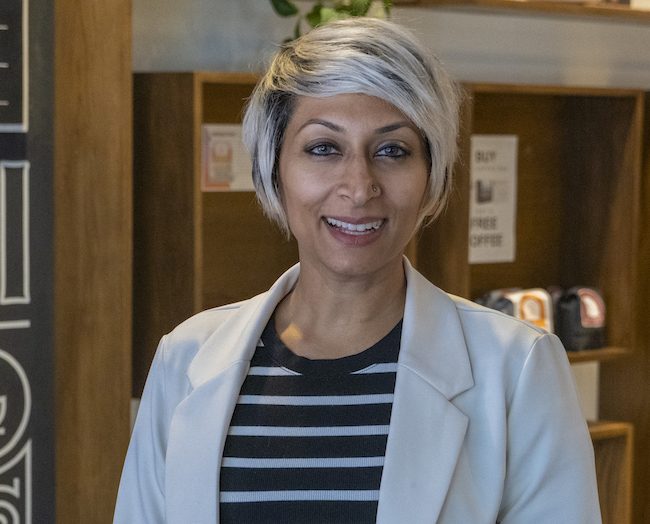


cbguptill
just watched The Lost boys on CNN. a most excellent documentary. just wondering why it was accompanied by disturbing, frenetic, constant background noise. i call it noise because it surely can’t be called any kind of music. what is this trend that has background noise/music that totally overpowers the subject or story being told?? it is unnecessary – people get a lot more out of a piece by listening ONLY to the person/people talking without having to listen to something that only creates a problem & takes energy & attention to deal with what seems like & has the effect of a strobe light shining in your face